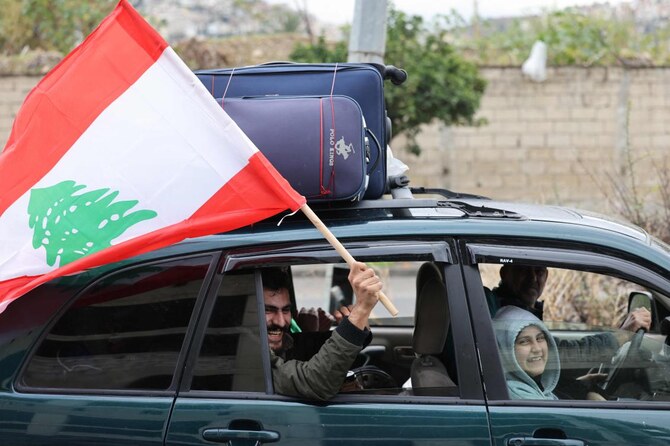World leaders react to ceasefire in Lebanon
3 min read
World leaders have been offering their reactions to the recent ceasefire agreement in Lebanon, hailing it as a significant step toward peace in the region. The ceasefire, which marks a temporary halt in hostilities between Israel and Lebanese militant groups, has been met with cautious optimism from the international community, as well as calls for similar actions in other conflict zones.
UN Secretary-General António Guterres referred to the deal as “the first ray of hope for peace” in the broader regional conflict. He underscored the importance of the ceasefire, which initially lasts for 60 days, as a momentary respite in the ongoing violence that has plagued Lebanon for nearly two years. The international community has been watching closely to see if this agreement could pave the way for a lasting peace in Lebanon and beyond.
Iran’s Foreign Minister echoed these sentiments, hoping the agreement could eventually lead to a permanent ceasefire. Tehran has been one of the main backers of Hezbollah, the Lebanese militant group, and has shown support for efforts aimed at de-escalating violence in the region. The hope is that this temporary agreement will provide an opportunity for more comprehensive peace negotiations.
Turkey, meanwhile, called on Israel to compensate for the extensive damage caused by its military actions in Lebanon. The Turkish government’s statement reflects concerns about the humanitarian toll of the conflict, with many civilians having lost their homes and livelihoods due to the fighting. Israel’s military actions have been criticized by various international bodies for their impact on Lebanon’s civilian population.
The Palestinian presidency also weighed in on the situation, calling for increased global pressure on Israel to halt its military actions not just in Lebanon but also in Gaza and the West Bank. Palestinian leaders have long criticized Israel’s policies toward Palestinians in these territories, and the call for international intervention is a continuation of their broader demands for an end to Israeli occupation and military action in the region.
South Africa expressed its full support for the implementation of the ceasefire in Lebanon, highlighting the importance of such agreements in reducing regional tensions. The country also called for a similar approach in Gaza, where hostilities between Israel and Palestinian militant groups like Hamas have resulted in significant loss of life and suffering. South Africa’s statement is a reminder of the interconnectedness of the various conflicts in the Middle East and the need for a comprehensive peace strategy.
In Egypt, Qatar’s Foreign Minister, who played a key role in facilitating talks between Israel and Palestinian militant groups, met with Egyptian officials to discuss the progress of ceasefire negotiations. Qatar and Egypt have been involved in intensive mediation efforts, particularly with regard to the situation in Gaza. Egyptian Foreign Minister Badr Abdelatty noted the “sincere and tireless efforts” between the two nations to reach a deal that would stop the bloodshed and lead to the release of hostages and Palestinian prisoners.
However, the prospect of a similar ceasefire deal in Gaza remains uncertain. While Hamas has reportedly expressed willingness to negotiate a serious deal, including the possibility of prisoner exchanges, the success of such negotiations largely depends on the position of Israeli Prime Minister Benjamin Netanyahu. Analysts have suggested that Netanyahu’s government, which is heavily reliant on far-right and expansionist parties, may be resistant to a ceasefire agreement. These parties have openly rejected any deal with Hamas, with some advocating for more aggressive measures in Gaza, including the colonization of the area.
The hostage situation in Gaza remains a critical issue, with around 100 people still being held by Hamas, many of whom are believed to be dead. Some families of the hostages, such as Ifat Kalderon, whose cousin is among the captives, have expressed frustration with the lack of progress on a deal. Kalderon criticized Netanyahu for seeming to prioritize continued military action in Gaza over the release of hostages, highlighting the personal toll the situation is taking on families who remain uncertain about the fate of their loved ones.
Qatar, frustrated by the lack of tangible progress in securing a ceasefire for Gaza, has suspended its key mediation efforts, signaling growing impatience with the stalled negotiations. As the situation in both Lebanon and Gaza remains volatile, world leaders continue to call for more robust international efforts to achieve lasting peace and stability in the region.







